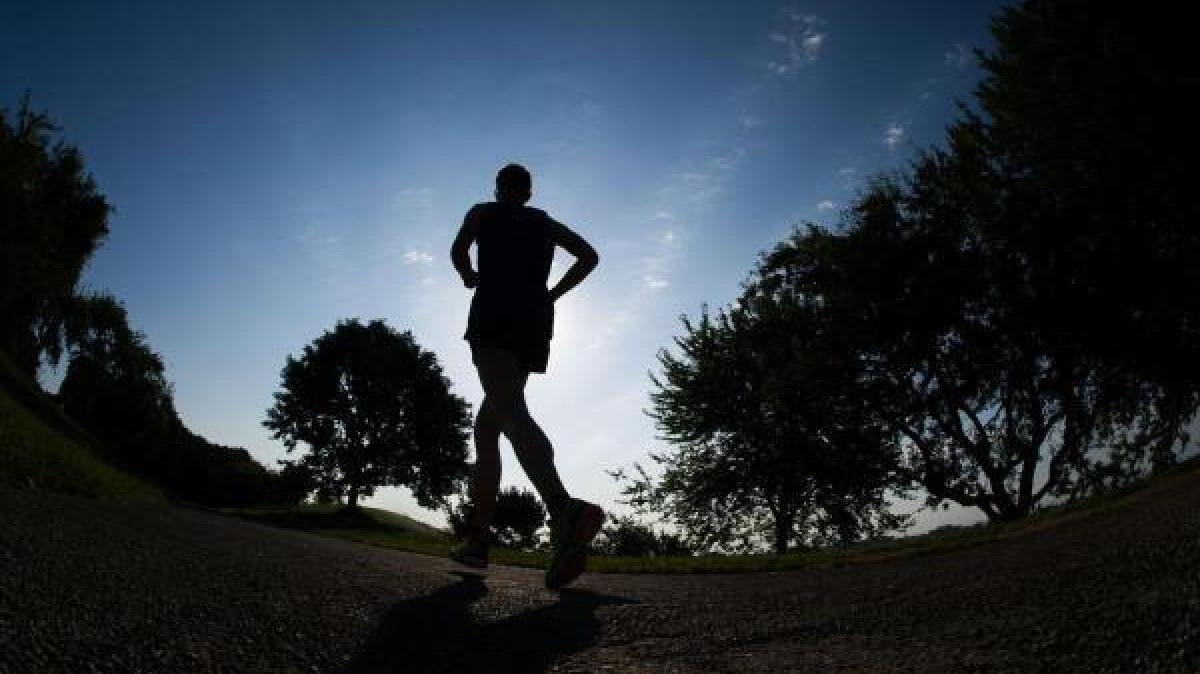Cancer patients often want to know whether they can do something themselves to beat the disease. That is the experience of Prof. Dr. Martin Trepel, the director of the II Medical Clinic of the university hospital. In fact, they can have a positive effect on cancer through proper nutrition and more exercise. He explains the effects of physical activity in particular as part of the medical lecture series in the Citizens’ Hall.
According to Trepel, there has been increased research in recent years on the effect of exercise on certain types of cancer. Although the connection has been known for a good 25 years, new studies have confirmed and significantly expanded the findings; However, they still receive too little attention in practical medicine. If the cancer has not yet occurred, the risk of developing the disease can be reduced by up to 30 percent, depending on the type of cancer. Cancer that has already been diagnosed can also be influenced favorably: the risk that it will return after treatment and the risk of death could decrease by 20 percent or more, depending on the type of cancer. This applies to a limited extent even if the patient had previously moved little. In an advanced stage, exercise still prevents complications from occurring during therapy and probably reduces the risk of rapid progression of the disease.
Exercise helps some types of cancer more than others
By exercise, Trepel does not mean competitive sports; However, it must go beyond occasional walks. Exercise is beneficial for cancer patients because the body’s defenses are strengthened and circulatory functions are improved. According to Trepel, messenger substances are increasingly released that activate the immune system. The effect is best in the early stages of cancer because the immune system is able to fight small tumor foci on its own. If the patient also pays attention to the right diet, the positive effects of diet and exercise reinforce each other.
However, Trepel has to make one caveat: exercise and proper nutrition help some types of cancer better than others. The effect is rather low in leukemia, brain tumors or stomach cancer (although physical activity can be very useful for other reasons). However, patient involvement is particularly recommended in the case of colon, kidney, esophageal, breast and cervical cancer.
The lecture “Exercise and sport for cancer – what is possible and useful?” will take place on Monday, November 18th, at 7:30 p.m. in the Stadtbergen Citizens’ Hall. Entry: 5 euros.
-
Andreas Alt Icon tick set in a circle Icon Plus in a circle
-
University Hospital Icon Checkmark set in a circle Icon Plus in a circle
-
Nutrition Icon Checkmark set in a circle Icon Plus in a circle
What are some specific lifestyle changes that cancer patients can implement to support their treatment and recovery?
Sure, I’d be happy to help you with that! Here’s an interview with two guests about the topics covered in the article:
Guest 1: Dr. Martin Trepel, Director of the II Medical Clinic at the University Hospital
Guest 2: Janine Stolz, a patient who has successfully fought against cancer through lifestyle changes
Interviewer: Hello, thank you both for joining me today. Dr. Trepel, can you start by explaining why cancer patients often want to know if they can take any action to improve their condition?
Dr. Trepel: Absolutely. I think it’s natural for patients to feel like they want to do something to contribute to their own healing process. There’s a growing body of research showing that lifestyle changes, such as proper nutrition and exercise, can have a positive impact on cancer outcomes. I’ll be exploring these topics in more detail in my upcoming lecture at the Stadtbergen Citizens’ Hall.
Interviewer: Great. Janine, can you tell us about your personal experience with cancer and how exercise and nutrition played a role in your treatment?
Janine: Hi there. Yes, I was diagnosed with breast cancer about five years ago. At first, I was very overwhelmed and didn’t know where to turn. But after doing some research, I realized that making changes to my diet and starting an exercise routine could make a huge difference. I started following a plant-based diet and doing regular yoga and walking. It wasn’t easy at first, but it slowly became routine and part of my daily life. Now, I’m grateful to say that I’m in remission and feel better than ever.
Interviewer: That’s incredible to hear. Dr. Trepel, can you elaborate on the connection between exercise and cancer? How does it impact different types of cancer?
Dr. Trepel: Sure. Exercise can help fight cancer in several ways. It can improve circulation, boost the immune system, and reduce inflammation, all of which are essential for the body’s natural defenses against disease. However, the effect varies depending on the type of cancer. For example, exercise has been shown to be most effective in colon, kidney, esophageal

